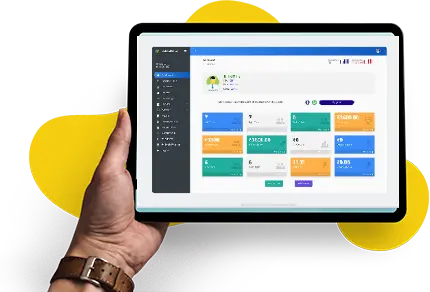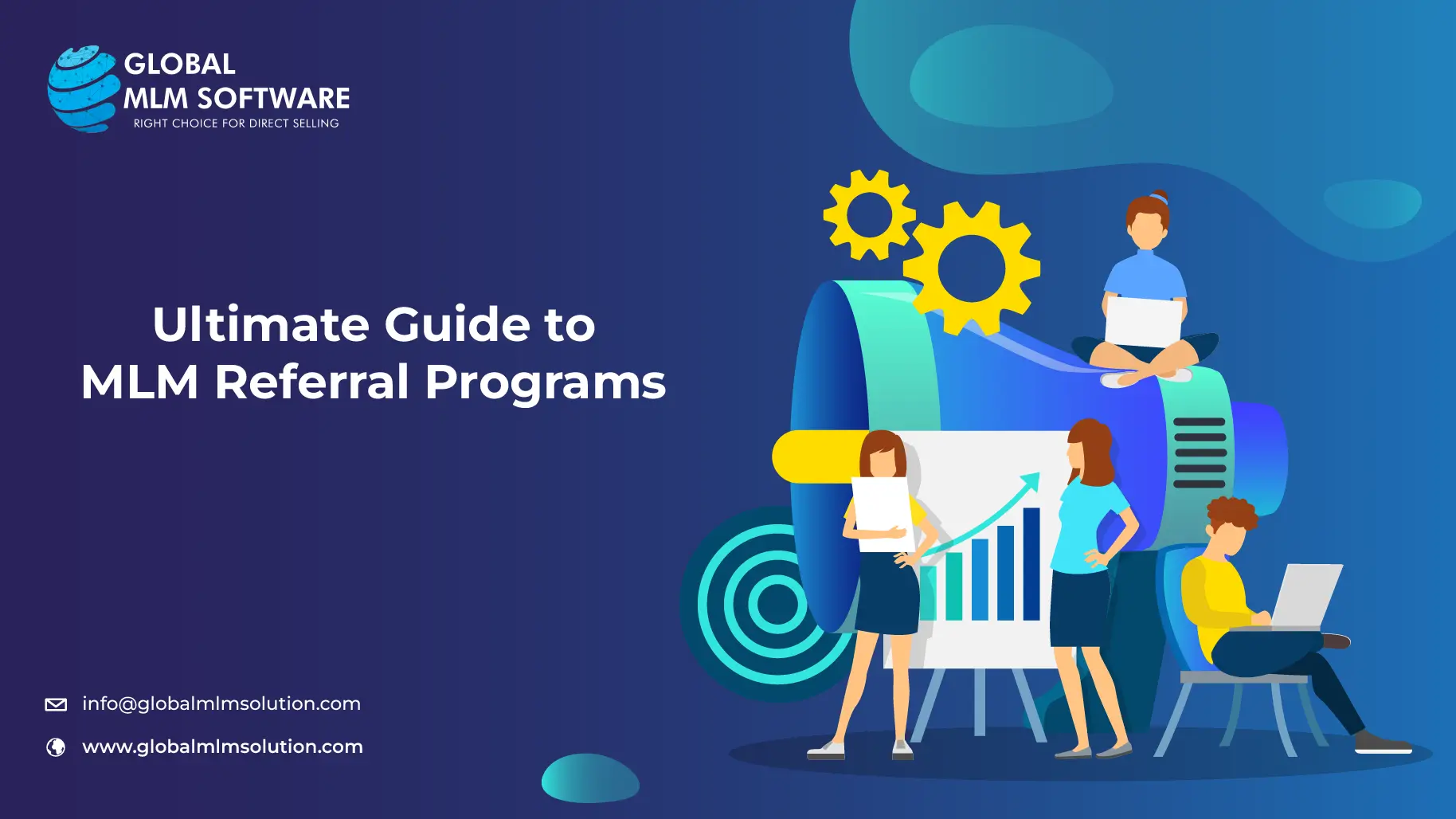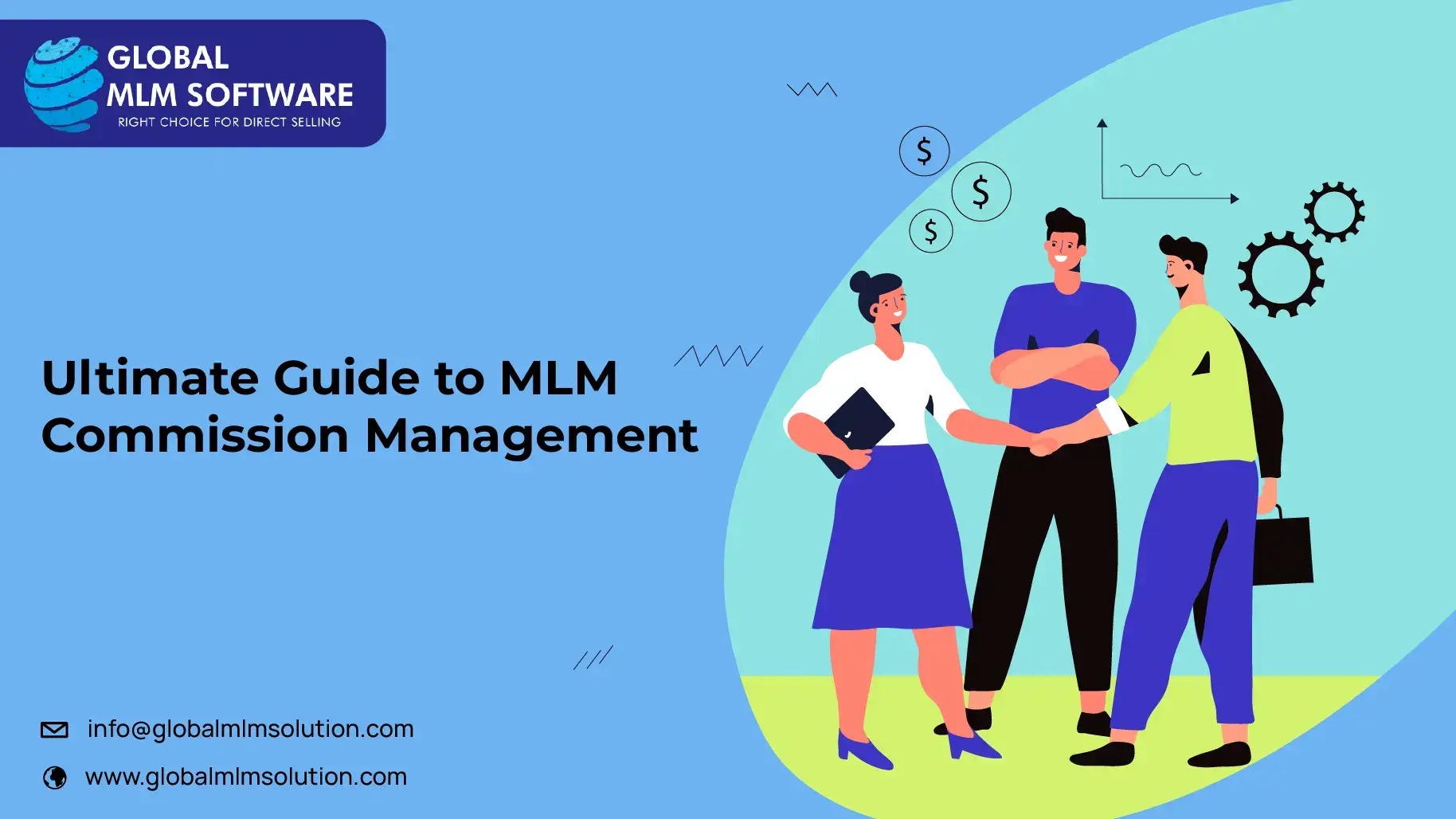In 1939, the Nutrilite Protein Powder was launched, and it quickly became a market sensation. Similarly, Herbalife introduced the Formula 1 Nutritional Shake meal replacement drink, which again captured global attention.
Other products like ageLOC Lumi Spa by Nu Skin and the TimeWise Miracle Set by Mary Kay also revolutionized skincare. So what makes these MLM products so successful?
The answer lies in their quality and appeal. Exceptional products form the backbone of any thriving MLM business. Without the right product offering, even the most sophisticated marketing strategies or incentive plans can fall flat. So if you are looking to establish an MLM business, you need to get your product offering right.
This guide covers everything you need to know about MLM products, including the product model, key categories, effective selling strategies, and common myths. By the end, you’ll understand how to build a product-driven MLM business that can thrive sustainably in a competitive market.
This Article Contains:
What is an MLM Product?
MLM products are goods or services distributed through the multi-level marketing model. These products are the company’s core offering and are sold through a network of independent distributors.
In MLM, it's important to have a distinguishing factor in the products and position them effectively. It can be a premium solution or an affordable alternative. The marketing should align with your target audience and highlight the product’s real value.
For example, a nutritional shake can be positioned as a convenient, cost-effective way to maintain daily health. This appeals to busy professionals who are looking for practical wellness solutions.
Also, MLM products come with a certain exclusivity. Customers access them through a distributor rather than a conventional retail shelf and often receive personalized guidance and support. This personalized attention creates both a selling point and a loyalty factor.
For example, SeneGence MLM Company’s LipSense is a classic MLM product. Customers can’t find it in regular retail stores and must purchase directly from independent SeneGence distributors.
Each purchase is often accompanied by personalized application tips, color-matching guidance, and beauty advice from the seller. This curated, hands-on experience gives LipSense its distinctive value and sets it apart from ordinary cosmetics.
Understanding the MLM Product Lifecycle
Now, let’s look at the MLM product model that takes them from production all the way to the customer.
The MLM product model works a bit differently from the traditional model. If you’re in the process of selecting the right product for your MLM business, you first need to understand this complete framework, which can be broken down into three key stages:
1) Creation
Before a product can reach the market, it must be developed. There are three ways to do this:
In-house manufacturing: Under this, you manufacture the products yourself. This gives you full control over quality and consistency.
For example, doTERRA manufactures its own essential oils in-house at its Utah manufacturing facility.
Partnering with a private label company: If you have a unique product idea, you can partner with a trusted private label manufacturing company to produce it for you.
For example, though Scentsy manufactures its own wax bars, its unique wax warmers are created by selected partner manufacturers in China.
Sourcing already manufactured unique products: Instead of creating something new, you can source products that are already being made but align with your brand and audience. Then, you simply sell them under your own label.
For example, large MLM companies like Amway and Herbalife that have extensive product lines source certain products from various suppliers, and sell them under their brand.
2) Positioning
After the product is manufactured or sourced, its positioning will define how it is perceived by customers. It answers the critical question—why should someone choose this product, and how does it make life better?
In MLM, positioning goes way beyond the product’s pricing; it highlights the USP, differentiating it from competitors and aligning with customer needs. A strong positioning strategy is built on solid market analysis and an understanding of demand. By studying customer preferences, lifestyle trends, and competitors’ gaps, companies identify where their product fits best.
For example, a company might look at what competitors are offering and notice a gap, like supplements that are either too pricey or not convenient for busy lifestyles. By spotting this, they can position their product as an easy-to-use, affordable daily supplement, with unique benefits such as faster absorption or all-natural ingredients.
Similarly, in skincare, if most products on the market are just general anti-aging creams, a new product can stand out by emphasizing research-backed results, special ingredients, or targeted effects, making it clear why it’s different and worth trying.
Ultimately, your MLM product’s strong positioning will ensure your distributors can communicate the product’s value clearly and consistently, which will directly impact sales and brand loyalty.
3) Distribution
Now here is where the MLM model shines. The normal distribution chain goes like this: Manufacturer → Wholesaler → Retailer → End Consumer.
The MLM distribution model bypasses wholesalers and retailers. It connects the manufacturer directly to a network of distributors, who act as both sellers and customers.
They buy, use, and experience the products personally, and then share them within their own networks to earn commissions.
This leaner structure eliminates the heavy costs associated with middlemen, retail markups, and advertising campaigns. Instead, those funds are redirected into commissions and incentives for distributors. Also, a reliable MLM shipping system plays a key role in this process by ensuring that products reach distributors and customers efficiently.
In other words, rather than paying for billboards or shelf space in stores, companies invest in people who already love the product and are motivated to share it. This makes the model not just cost-efficient but also more personal, as the sales pitch comes from trusted recommendations.
4) Innovation and Product Improvement
Once the product reaches the end customers, keeping it fresh and improved is key. That might mean tweaking formulas, adding new flavors, or updating packaging to make it more appealing. It gives distributors something new to share and keeps customers interested.
Also, customer feedback and analyzing competitor offerings help companies identify gaps and develop unique selling points that set their products apart. Ultimately, continuous product improvement strengthens brand loyalty, builds trust, and ensures the MLM company stays competitive in a fast-moving market.
Exploring the Types of MLM Products
The global MLM industry today thrives on product diversity, with companies offering everything from health supplements and essential oils to cosmetics, fashion, and even financial services.
In this section, we will understand the different product categories along with their market share, demographics, and the MLM compensation plans suitable for such products.
1) Health and wellness Products
It is one of the most dominant product categories in MLM, consistently leading global sales. This demand is driven by rising consumer focus on preventive healthcare and holistic living.
| Category | Details |
|---|---|
| Products | Supplements, protein shakes, probiotics, weight management kits, essential oils, and immunity boosters. |
| Global Sales Share | 32% of global direct sales |
| Demographics (US) | Strong demand among ages 25–54; popular with health-conscious millennials and baby boomers |
| Latest Innovations | Adaptogenic supplements, personalized vitamin packs, plant-based superfood blends, gut health formulas, functional beverages |
| Best MLM Plan | Unilevel MLM plan — works best due to repeat purchases and strong retail focus |
2) Skin Care / Personal Care and Beauty Products
Beauty and personal care are another trending product category, thanks to the timeless appeal of looking and feeling good. People are constantly seeking solutions that enhance their confidence and wellness, which makes this category a steady performer in the industry.
| Category | Details |
|---|---|
| Products | Skincare creams, serums, makeup, anti-aging products, and grooming kits |
| Global Sales Share | 24% of global direct sales. |
| Demographics (US) | Primarily women aged 18–45; growing demand in the male grooming segment |
| Latest Innovations | AI-driven skincare analysis with custom kits, hybrid makeup-skincare products, nutrient-infused serums |
| Best MLM Plan | Binary MLM plan — effective for fast growth with influencer-driven promotion |
3) Household Goods and Durables
Household goods and durables are experiencing increasing demand due to their practicality and lasting value. Consumers are drawn to items that simplify daily life, improve home efficiency, and stand the test of time.
| Category | Details |
|---|---|
| Products | Biodegradable cleaners, laundry sheets, reusable home products |
| Global Sales Share | 17% of global direct sales |
| Demographics | Young families, millennials, and eco-conscious buyers in urban markets |
| Latest Innovations | Smart home devices, eco-friendly kitchen tools, multipurpose cleaning gadgets |
| Best MLM Plan | Unilevel or Hybrid MLM Plans — encourage broad product adoption |
4) Digital Courses and Books
The rise of online learning and self-improvement has opened up a thriving space for digital courses and books. Though it's still a niche category, educational MLM companies are appealing to consumers looking for convenient knowledge and personal growth.
| Category | Details |
|---|---|
| Products | Online courses, personal development books, training programs |
| Global Sales Share | 3% of global direct sales |
| Demographics | Ages 20–40; entrepreneurs; gig-economy workers |
| Latest Innovations | AI-based interactive learning platforms, micro-learning modules, and mobile-based learning |
| Best MLM Plan | Matrix MLM plan — best suited for subscription and tier-based growth |
5) Clothing and Accessories
Clothing and accessories are another segment in the MLM industry, driven by consumer desire for unique, personalized, and fashion-forward items. These products often thrive on exclusivity and trend appeal.
| Category | Details |
|---|---|
| Products | Fashion clothing, custom men’s clothing, everyday wear, jewelry pieces |
| Global Sales Share | 4% of global direct sales |
| Demographics | Women aged 18–40; middle-income buyers |
| Latest Innovations | Customizable jewelry with interchangeable charms, long pendant necklaces, and eco-friendly clothing |
| Best MLM Plan | Party MLM Plan or Binary Plan — effective for social selling |
6) Home Décor
A lifestyle-driven MLM category tied to home improvement and creative living. Consumers are increasingly seeking products that not only enhance the aesthetic appeal of their homes but also offer practicality and sustainability.
| Category | Details |
|---|---|
| Products | Decorative home items, tableware, candles, fragrances, wall art, smart lighting, seasonal decor, bedding, storage, and organizing solutions. |
| Global Sales Share | 2% of global direct sales |
| Demographics | Ages 30–55; suburban homeowners |
| Latest Innovations | Multipurpose and eco-friendly cookware, smart kitchen gadgets, and customized home décor |
| Best MLM Plan | Party MLM Plan—ideal for demos and product showcases |
7) Pet Products
Pet ownership in the US is at record highs. This segment is gaining traction as more consumers prioritize the health, nutrition, and overall well-being of their pets.
| Category | Details |
|---|---|
| Products | Pet food, supplements, grooming tools, accessories |
| Demographics | Pet owners aged 25–55, especially millennials |
| Latest Innovations | CBD-infused pet treats, organic pet food, smart feeding devices, and eco-friendly toys |
| Best MLM Plan | Unilevel MLM Plan — effective for repeat consumable purchases |
8) Food and Beverages
The food and beverage MLM category serves lifestyle-conscious consumers with premium snacks, health drinks, nutritional supplements, and gourmet foods, focusing on quality, convenience, and personalized experiences. This category includes wine MLMs as well as food MLM companies.
| Category | Details |
|---|---|
| Products | Gourmet foods, coffee and tea, wines, craft beers, organic snacks, functional beverages (collagen drinks, kombucha, aloe vera juice), and immunity-boosting tonics. |
| Global Sales Share | 2% of global direct sales |
| Demographics | Ages 30–60; middle- to high-income lifestyle buyers |
| Latest Innovations | Personalized wine subscription boxes |
| Best MLM Plan | Matrix MLM Plan—ideal for subscription-based, tiered clubs |
9) Financial Products (Insurance & Services)
Financial MLMs focus on long-term value products, not physical items. They help people secure their future through investment advice, insurance, etc.
| Category | Details |
|---|---|
| Products | Insurance, investments, and financial education services |
| Global Sales Share | 5% of global direct sales |
| Demographics | Adults aged 25–60; professionals; families |
| Latest Innovations | App-based micro-insurance policies, digital investment platforms, and automated financial wellness tools |
| Best MLM Plan | Hybrid or Unilevel MLM Plans — suit both recruiting and client servicing |
10) Utilities
Utilities MLMs focus on essential services rather than physical products. They help customers manage everyday needs like electricity, water, gas, or internet services while providing distributors with recurring revenue opportunities.
| Category | Details |
|---|---|
| Products | Electricity, natural gas, water, internet, and energy management solutions |
| Global Sales Share | 3% of global direct sales |
| Demographics | Adults aged 25–60; homeowners; small business owners |
| Latest Innovations | Smart home energy solutions, app-based usage tracking, and renewable energy subscriptions |
| Best MLM Plan | Hybrid or Unilevel MLM Plans—ideal for recurring service-based sales and client retention |
Legal and Ethical Considerations for Network Marketing Products
As an MLM business, a strong legal foundation will keep you away from the watchful eyes of agencies like the Federal Trade Commission (FTC). It will also help you create a sustainable and reputable business. Below, we have listed some key legal and ethical considerations to keep in mind:
1) Product Safety and Regulatory Compliance:
Products must follow MLM compliance with relevant safety and health regulations. For example, dietary supplements in the U.S. must meet FDA guidelines under the Dietary Supplement Health and Education Act (DSHEA), while cosmetics must comply with FDA labeling requirements. Internationally, products must meet local regulations such as the EU Cosmetic Regulation or Health Canada requirements.
2) Accurate Product Claims:
Marketing materials must accurately reflect the product’s benefits without exaggeration or misleading statements. The FTC enforces rules against false advertising, and similar agencies internationally, such as the European Consumer Organisation (BEUC), monitor product claims.
For example, an MLM skincare company cannot claim its moisturizer “reverses aging in 7 days” without credible clinical evidence. Instead, they can highlight tested results like “90% of users reported smoother skin after four weeks,” if they are backed by real studies.
3) Labeling and Ingredient Transparency:
Product labels should clearly list all ingredients, usage instructions, and potential risks. This is critical for compliance with consumer protection laws like the FDA’s labeling requirements or the EU’s CLP Regulation (Classification, Labeling, and Packaging).
4) Data Privacy in Product Sales:
Personal data collected during product orders, subscriptions, or promotions must comply with laws such as GDPR (EU) or CCPA (California), ensuring customer information is protected.
5) Return and Buyback Policies:
MLM products should have clear return, refund, or buyback policies to protect distributors and customers from financial loss or unsellable inventory. This demonstrates fairness and builds trust.
6) Ethical Marketing Practices:
Avoid exaggerated testimonials, unverified claims, or pressure tactics to sell products. Focus on product quality and genuine customer value. Ethical considerations also include preventing the exploitation of personal relationships in product promotion.
How to Market and Sell your MLM Products Effectively?
Now that your MLM product is market-ready and compliant, it is not going to sell itself. You will have to actively create awareness, build trust, and communicate its value to potential customers.
Effective marketing combines product knowledge, clear messaging, and ethical selling practices. It’s about showing why your product matters, how it solves a problem, and why it is worth purchasing.
With the right approach, your distributors can confidently present the product, attract genuine interest, and turn prospects into loyal customers. Here are key strategies to make your MLM product stand out and sell effectively:
1) In-House Research and Certifications
Your marketing message is only as strong as the product behind it. Back your products with solid in-house research, third-party testing, and the right certifications.
In the US, this may include FDA compliance, NSF certification, or USP verification for supplements, foods, beverages, and cosmetics. These steps reassure both distributors and customers that your products are safe, effective, and trustworthy.
2) Develop a Clear Brand Story
Your product should tell a story that resonates with your audience. Highlight its unique benefits, origin, and the problem it solves. A compelling narrative makes it easier for distributors to explain and for customers to connect emotionally.
3) Create Engaging Marketing Materials
Provide your distributors with brochures, videos, social media content, and product guides. High-quality visuals and clear messaging help them confidently present the product and answer customer questions.
4) Empower Distributors with Marketing Tools
Give your distributors the right digital resources to succeed. This includes replicated websites, e-commerce platforms, and automated marketing tools. Offer MLM training sessions to ensure they know how to use these tools effectively, enabling them to attract, educate, and retain customers.
5) Leverage Digital Marketing
Use social media, email campaigns, and targeted online ads to reach your ideal customers. Encourage distributors to share authentic experiences, product demonstrations, and testimonials to increase credibility and engagement.
6) Host Product Experiences
Organize live or virtual tasting sessions, demonstrations, or workshops (especially for food, beverage, and wellness products). Experiencing the product firsthand builds interest and motivates purchases.
7) Offer Incentives and Promotions
Introduce limited-time offers, referral rewards, or loyalty programs to encourage trial and repeat purchases. This motivates distributors while keeping customers engaged.
8) Pair Marketing with a Clear Compensation Plan
Make sure your distributors understand how they earn, advance, and benefit from promotions. A well-structured plan motivates distributors to actively promote the product while maintaining ethical sales practices.
9) Ensure a Customer Experience
A smooth purchase process is just as important as good marketing. Ensure easy ordering, reliable MLM shipping, responsive customer support, and clear usage instructions. When customers feel supported and confident, they’re more likely to repurchase and recommend your products, which in turn fuels long-term growth and reputation.
10) Collect Feedback and Iterate
Monitor customer and distributor feedback to refine your messaging, improve your product, and adjust your marketing approach. Continuous improvement keeps your product competitive in a fast-evolving market.
How Do Distributors Evaluate MLM Products Before Joining?
Your MLM business is as strong and effective as your distributor network. As an MLM business owner, if you have wondered how prospects evaluate your MLM business opportunity, the most important thing they consider is the products you offer.
Before committing to promote an MLM product, potential distributors carefully assess its potential for success. They go way deeper than the product itself; they also consider market demand, profitability, and how easily it can be sold. They may consider a product to be a good fit if:
It is reliable, safe, and delivers its promise. Products with proven results build confidence and make selling easier.
There is a genuine need or interest in the product. Saturated or low-demand products can make distributor recruitment and sales challenging.
The product offers good value for its cost. Distributors prefer products that customers see as worth the investment.
The product is simple to sell and demonstrate
The products come with marketing materials, MLM training, and digital tools available to help them succeed.
The products meet regulatory standards and have clear usage guidelines, as they reduce liability concerns for distributors.
The product carries a satisfactory sales margin. Distributors consider how much they earn per sale and also check if the MLM commission structure is motivating and fair.
You need to understand these considerations from a distributor's perspective because it allows you to design products and support systems that meet their expectations. This way, you make your products more appealing and easier to sell, attracting motivated distributors and ensuring your MLM business grows sustainably.
Popular MLM Companies and Their Top MLM Products
In the world of MLM, some companies have built their reputations on standout products that define their brand and drive distributor sales. If you guessed the companies behind the popular products mentioned in the introduction, it’s no coincidence. These MLMs have mastered the art of marketing and product positioning.
Here’s a look at ten of the most popular MLM companies and the products that have become their signature offerings.
| Company | Flagship Product(s) | Country |
|---|---|---|
| Amway | Artistry skincare, Nutrilite supplements | USA |
| Herbalife Nutrition | Formula 1 Healthy Meal Replacement Shake, Herbalife24 sports nutrition products, SKIN™ facial products | USA |
| Avon | Anew skincare line, Skin So Soft body care | USA |
| Nu Skin | ageLOC anti-aging products, Galvanic Spa device | USA |
| Forever Living | Aloe Vera Gel, Forever Lite protein shakes | USA |
| Young Living | Thieves essential oil blend, Lavender essential oil | USA |
| doTERRA | On Guard protective blend, Deep Blue soothing blend | USA |
| PM International | FitLine nutritional supplements, BeautyLine skincare | Germany |
| Mary Kay | TimeWise® Miracle Set skincare, TimeWise Repair® Volu-Firm® Set anti-aging skincare | USA |
| Isagenix | IsaLean shakes, Ionix Supreme adaptogen drink | USA |
These flagship products show just how much a standout item can shape an MLM company’s identity and success. These examples can give useful insights into how to choose, market, and position products that truly resonate with customers.
Common Myths and Misconceptions About MLM Products
MLM products have certainly received their fair share of criticism in the past. It may be related to their quality or how they are marketed and sold. Over the years, these myths have actually clouded how people see these products, often overshadowing their actual value.
Let’s clear the air by breaking down some of the most common misconceptions that surround network marketing products.
Myth 1: MLM products are overpriced
While some MLM products may seem pricier at first glance, they often include premium ingredients, unique formulations, or exclusive benefits you won’t find in regular retail. In many cases, the added value is what justifies the cost.
Myth 2: MLM products don’t work as well as regular products
Few MLM products are backed by research, clinical trials, or high-quality sourcing, making them comparable to traditional retail products.
Myth 3: MLM products are hard to sell
Most prospects aren’t eager to buy products. But when distributors focus on educating customers about the real benefits and sharing personal results, the products become much easier to sell. It’s about building trust, not just making a quick sale.
Myth 4: All MLM products are the same
Not at all. From cosmetics to health supplements to eco-friendly cleaning products, MLM companies often specialize in niche categories. The variety is one of the reasons these products stand out.
Myth 5: Buying MLM products only supports the “upline.”
Customers often assume their purchase only enriches the top earners. But most MLM plans reward retail sales directly, ensuring frontline distributors earn income too.
The Importance of Product Quality in MLM Success
When it comes to MLM, product quality is the foundation of long-term success. A compensation plan or a motivated salesforce can only take a company so far. If the product doesn’t deliver on its promises, both distributors and customers quickly lose faith, and the business model collapses.
Product quality affects the following aspects of an MLM business:
1) Customer Loyalty and Retention
When products actually deliver results, customers naturally come back for more. This repeat buying cycle creates steady revenue and gives the business long-term stability.
2) Word-of-Mouth Publicity
People love sharing things that work for them. High-quality products spark genuine excitement, and distributors end up promoting them not just for income, but out of personal belief in their value.
3) Brand Reputation
A company’s reputation is only as strong as its products. Consistently good quality builds trust, while poor-quality offerings can damage credibility and make it harder to attract or keep customers.
4) Competitive Advantage
In an industry full of similar opportunities, strong product quality becomes the deciding factor. It helps the company stand out and gives distributors a clear edge when talking to potential customers.
5) Long-Term Distributor Motivation
Selling products that people genuinely want keeps distributors inspired and engaged. On the other hand, if the products don’t measure up, enthusiasm fades and dropout rates rise quickly.
Future Trends in MLM Products
The MLM landscape is constantly evolving, largely because of the shift in consumer interests. People are always looking for the next best thing. This raises the need for MLM companies to keep themselves updated with the latest trends.
This section talks about some of the future trends in MLM products. If you are an MLM entrepreneur, it will help you understand where opportunities lie, so that you can stay competitive in the fast-moving MLM market.
1) Wellness and Preventive Health Products
The global wellness economy is expected to reach $8.5 trillion by 2027, and this increase is expected to be felt in the MLM industry as well. As mentioned earlier, health and wellness have the highest market share among MLM products and will continue to do so in the future. The sector will see some innovative trends like functional foods, nutraceuticals, holistic health solutions, and customized recommendations through AI.
2) Eco-Friendly and Sustainable offerings
One of the biggest shifts we are seeing is the rise of eco-conscious products. Today’s consumers aren’t just looking for something that works; they want something that aligns with their values. Products that are safe, sustainable, and kind to the planet are gaining traction fast.
For example, Norwex is an MLM company that has built its reputation around an eco-friendly lifestyle. It offers a range of products like reusable kitchen items and chemical-free personal care products. Norwex shows how MLM brands can thrive by aligning with the global shift toward greener living.
3) Personalization is the New Standard
One-size-fits-all just doesn't cut it anymore. Whether it’s skincare, nutrition, or even fragrances, people want products tailored to their specific needs. This shift is being embraced by MLMs, as they offer customizable product lines that feel personal rather than generic.
Take the case of Zinzino, a health and wellness MLM company that offers personalized nutrition and product recommendations based on individual blood tests. This personalized approach not only builds stronger trust with customers but also keeps them engaged longer.
4) Tech-infused products
Technology is now woven into everyday life, and MLM companies are starting to reflect that. They are embracing smart wellness devices, app-connected fitness tools, and even AI-powered beauty advice. These products make brands feel fresh and relevant for today’s consumers.
Take Nu Skin, for example. Their ageLOC Me system and LumiSpa iO devices bring tech and beauty together by offering personalized skincare regimens. The devices actually customize and automate routines based on user data. It’s a perfect blend of technology and traditional MLM offerings, making skincare smarter and more personal.
5) Fusion of Tradition and Innovation
Another exciting direction giving rise to some unique MLM products is the fusion of ancient remedies with modern science. Herbal formulas, essential oils, and time-tested health traditions are now being reimagined through cutting-edge research, resulting in products that feel both trustworthy and fresh.
For example, Forever Living Products has redefined the traditional use of Aloe Vera by developing advanced formulations that preserve its natural benefits while enhancing them with modern wellness science.
How MLM Products Are Redefining the Market
If there is one lesson to be learnt here, it is that products drive the MLM business. A strong MLM business is built by offering products that feel relevant, credible, and genuinely valuable in people’s lives.
So when it comes to selecting the right products for your MLM business, don’t focus on chasing trends. Instead, focus on staying true to quality, consistency, and innovation that resonates with real consumer needs.
Also, follow it up with a good product strategy, which includes the right marketing, strong pricing, and continuous product development to keep your offerings competitive and appealing over the long term.
FAQs
1. How should MLM companies decide between physical and digital MLM products?
It depends on the market and audience. Physical products build trust with something tangible, while digital products offer high margins and easy scalability. Many successful MLM companies offer both.
2. How important is product compliance for MLM companies?
Product compliance is extremely important in MLM. Non-compliance can lead to lawsuits, penalties, or even company shutdowns. It is better to stay within legal and industry regulations to keep your business safe and credible.
3. What role does product pricing play in MLM success?
In MLM, pricing shapes how customers view your product. Go too high, and sales slow down; go too low, and profits vanish. The goal isn’t just having the cheapest MLM products but offering affordable options with real value that customers trust and keep coming back for.
4. Should MLM companies offer seasonal or limited-edition products?
Yes, definitely. Seasonal or exclusive launches create excitement, urgency, and repeat purchases. However, they should complement your core product line and not replace it.
5. How do MLM companies ensure their product line remains relevant over time?
You can ensure this by keeping an eye on customer trends and feedback. Regular updates, innovations, and fresh marketing angles help keep products exciting and in demand.
6. How do MLM companies handle product returns in an MLM business model?
Clear policies are a key factor here. A fair return system is important to build customer trust. It is also essential to handle refunds efficiently, to prevent disputes, and to keep distributors motivated.
References
-
Federal Trade Commission
-
World Federation for Direct Selling Association
Disclaimer: Global MLM Software does not endorse any companies or products mentioned in this article. The content is derived from publicly available resources and does not favor any specific organizations, individuals or products.









